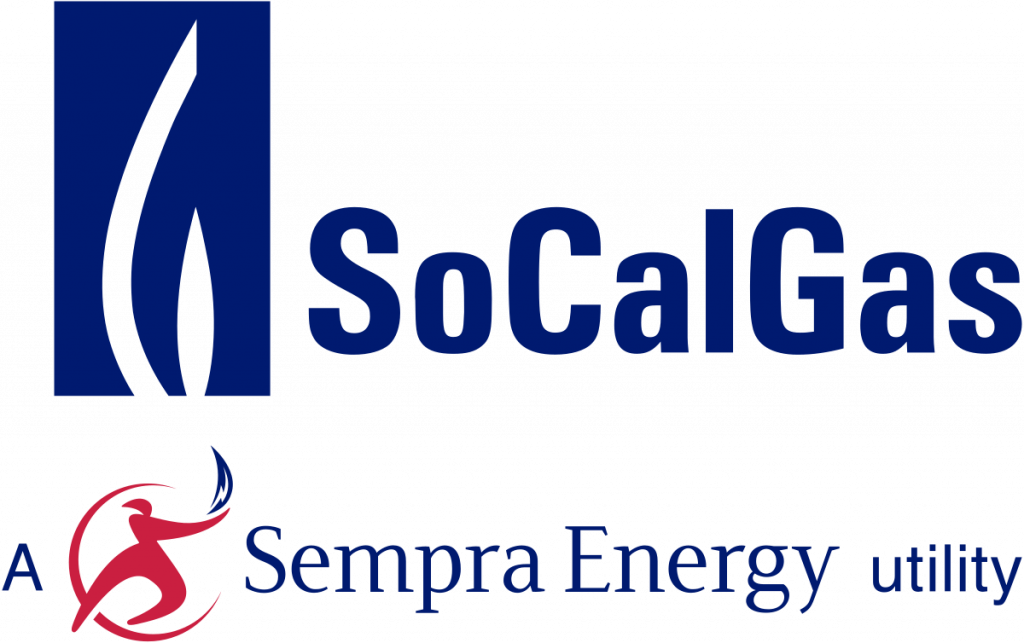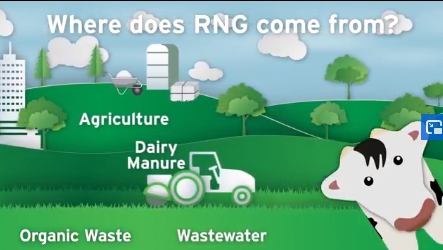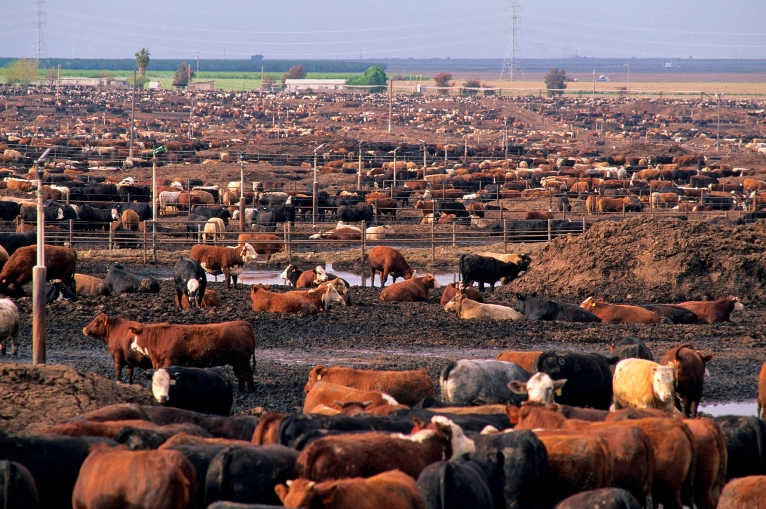I just have to write something about this story by Sammy Roth in Wednesday’s L.A. Times: How to stop a climate vote? Threaten a ‘no social distancing’ protest1.
This story is such a nexus of interwoven themes: climate denialism and its relationship to Coronavirus denialism; “greenwashing,” in this case the noisy promotion of clearly ineffectual schemes as a way to fend off meaningful climate action; the political influence of “good jobs;” and CAFOs (concentrated animal feeding operations). Too many threads, maybe. Oh, and domestic terrorism, too.
The background: the city council of San Luis Obispo (a beautiful small city on the California coast) was considering a bill to encourage2 construction of all-electric buildings, with no gas hookup. Many California cities have passed, or want to pass, such rules, as a way to make progress towards the state’s daunting 100%-clean-energy timeline.

As I’ve written, some of the electricity will come from the Gas Battery, so these new buildings won’t be CO2-free. But they’ll be a step closer, and it’s a chicken-and-egg situation: to prevent emissions, we need both a supply of clean electricity, and customers for it. We don’t have 24/7 clean power yet, but even if we did, the large number of buildings that rely on natural gas (for heat, hot water, cooking, etc.) would then have to be converted over to electric before they could stop burning gas. So this bill is a prudent step toward the day we get the supply sorted out—at least we can stop adding new buildings to the already huge backlog that aren’t electric-ready. And I applaud California for being the only large state whose citizens have the political will to take this sort of moderate but useful step.
So, San Luis Obispo scheduled another reading of the bill as a step toward passage. Then they heard from a gentleman [sic] named Eric Hoffman, who represents natural gas interests. From the article:
Hofmann is president of Utility Workers Union of America Local 132, which represents thousands of employees of Southern California Gas Co. — one of the nation’s largest gas utilities, and a prominent crusader against local efforts to phase out gas. He also chairs the board of directors of Californians for Balanced Energy Solutions, a pro-gas advocacy group that has received funding from SoCalGas and worked closely with the utility to generate opposition to all-electric building policies.
Hofmann’s message was simple:
“If the city council intends to move forward with another reading on a gas ban I can assure you there will be no social distancing in place…I strongly urge the city council to kick this can down the road to adhere to public health safety measures. Please don’t force my hand in bussing in hundreds and hundreds of pissed off people potentially adding to this pandemic….We will pull permits and close streets and have a massive protest on April 7th. Now is not the time to do this,” Hofmann wrote. “Please tell mayor harmon and the rest of the council for the sake of people’s health, that their efforts are better focused on how to better deal with this pandemic than to stir up all the emotions of people losing their jobs along with this disease.”
Note the mobster-style language: “Please don’t force my hand.” I plead with you to pay my protection money and spare me the anguish of having to burn down your store. That’d sure be a shame. And I’m not trying to violate the lockdown, you’re trying to violate the lockdown, by doing a thing I don’t like.
And an open threat to infect random people (including his own allies) with a disease of high lethality unless his demands are met…how is that not terrorism?
I think the most likely answer to that question is that he, and most of the gas company employees he represents, believe that “the virus thing” is completely overblown. So in his mind, what he’s picturing for his union members and innocent bystanders, if the city council doesn’t back down, is materially different from asking them to, for instance, walk into a hail of shrapnel. Which, in turn, means he’s not a terrorist. Never mind that COVID-19 has killed 78,000 Americans already, and grimly reaps more every day. It’s the flu, not a pipe bomb.
Once again, climate denial and virus denial join hands. Millions of words have been written about it, but it’s hard to improve on Upton Sinclair: “It is difficult to get a man to understand something, when his salary depends on his not understanding it.”
Another smell-test failure here is the “sweetheart union” aspect. Note that Hoffman is both president of the union local, and chairman of the board of an advocacy group funded by SoCalGas—the employer of the very union workers he represents. Now, the normal and traditional role of a union is to give the workers power so they can defend themselves against any greedy, exploitative, or dangerous practices their employer might try to get away with.

But in dying industries, things change. If your employer seems headed toward bankruptcy, it’s no longer about fighting for a fatter slice of pie. Union and employer might find themselves in bed together, both fighting for the survival of, perhaps, an entire industry that no longer has a reason to exist, other than the money that the people currently in that industry—whether labor or management—are accustomed to getting. That seems to be the case here. SoCalGas and Utility Workers Union of America have a common enemy: any change to the status quo. We must get rid of natural gas, but these folks will fight it tooth and nail. We didn’t expect much from the corporations to begin with, but it’s sad to see a union sink so low.
To peel yet another layer of stink off this onion, SoCalGas is a privately owned utility company. Like its more notorious cousin PG&E (remember the Camp Fire and the other wildfires of summer 2018?), SoCalGas is answerable to its investors, and has a fiduciary duty to provide the worst infrastructure and the crappiest service that mostly sympathetic regulators will turn a blind eye to, in order to maximize profits.
Imagine if we had privately owned interstate highways whose sole job was profit extraction. Long ago, cities had competing, private fire companies; they’d laugh as your house burned down if you weren’t one of their subscribers. (Why, once we even had private health insurance companies…oh, wait.) Investor-owned utility companies are one of the big reasons we continue to make so little progress on energy issues.
But wait, you’re thinking, we’re talking about California—where the very first liberal snowflakes crawled out of the La Brea Tar Pits3. Surely things are more enlightened there. It’s true, California is a hostile place if you don’t learn how to pay lip service to environmental idealism. SoCalGas knows this, and (together with their sweetheart union) has put big money into the slot of the PR machine.
They are calling for “balanced energy solutions” (which means, as we all know, “not balanced in the least”) and “renewable natural gas.” Which brings us to the cow poop. If you want the straight stuff, right from the orifice, SoCalGas has helpfully put up a website about it. In short, it’s biogas: methane captured from the decomposition of organic matter. Primary sources include landfills, animal manure, and solid waste from water treatment plants.

Now, that’s not an intrinsically terrible idea, in the same sense in which eating beef isn’t an intrinsically terrible idea. To digress into that a little, one of the largest contributors to human-caused atmospheric CO2 is carbon that was once in the soil, but which—due to soil degradation caused by industrial farming practices—has been released into the air. (Mostly, of course, in the process of growing cereal grains, simply because those make up the bulk of industrially-farmed foods4.)
The good news is that we can reverse this, can pull CO2 out of the air and put it back in the ground, restoring the soil’s health and productivity in the process. The ways we can do this are generally low-tech and inexpensive. “No-till farming” is one key component.
There’s a wealth of evidence that beef cows, if appropriately included in this kind of soil restoration project, can be strongly carbon negative and accelerate the healing of the land. I’ll probably write more about this sometime, but I have more reading to do first.
So why is it taken as gospel, and stated as obvious, that eating beef is terrible for the planet and turning vegetarian is an instant carbon win? One reason is that most beef isn’t raised responsibly. Nearly all U.S. beef cows are raised in CAFOs—concentrated animal feeding operations. They are bloated to unnatural size on grain, which cows are not equipped to digest well, and antibiotics, to keep them alive; crammed into pens where they stand in lagoons of their own waste until ready for slaughter. Not only is this a cruel life to impose on a cow, but the greens are right: the carbon footprint is abysmal. (I would love to see a full accounting, including the oil-fueled machinery to grow the grain, the oil-based fertilizer that makes the grain grow so fast, the oil-fueled machinery that trucks the grain and the cows around, and so on.)

Now, here comes the white-hat-sporting natural gas industry to “fix” this. How? By banning CAFOs, or even reforming them? No, the more low-nutrient-quality CAFO-raised beef Americans eat, the better. The only change they want to make is to siphon the waste from the lagoons into biogas digesters. Where, after expensive high-tech processing, we will have a nominally carbon-neutral fuel that does nothing at all to put carbon back in the soil. On the plus side, we don’t have to make very much of it, since it’s mostly for the press releases anyway.

This sort of two-wrongs-make-a-right solution seems to apply to other biogas sources as well. Landfills? Why is all that stuff in landfills in the first place? Should we address that? Think of a consumer product, such as a coffee maker, in a landfill. The total carbon bill for that piece of trash, starting with raw materials and taking a journey around the world with CO2-emitting processes every step of the way, is staggering. I don’t think that adding an extra step at the end to get some methane out of the garbage heap is really the solution we are looking for.
But it may be the kind of solution that fossil fuel industries and entrenched for-profit utility companies are looking for. The San Luis Obispo city council postponed its vote and has not yet rescheduled it. A final quote from the L.A. Times article:
San Luis Obispo Mayor Heidi Harmon, a longtime climate activist, said it is “incredibly disappointing and disturbing and concerning to hear that this group is willing to risk our community’s health and safety.” She described Hofmann’s threat as consistent with the fossil fuel industry’s willingness to “continue down this incredibly dangerous path” of heating the planet.
Harmon said she’s sympathetic to gas utility workers fearful of losing their jobs. But she feels strongly that fossil fuels need to stay in the ground, and that government ought to help fossil fuel workers transition to new jobs in the clean-energy economy.
She also pointed to emerging scientific research suggesting that poor air quality makes people more vulnerable to COVID-19.
“All these things are interconnected and interrelated,” Harmon said.
- Note: they’re one of those sites that are paywalled, but let you read a freebie sometimes. If I want to keep something from a site like that, I print it to PDF. Who knows, I might start giving the L.A. Times money, they’ve been good lately.
- From the article: Under San Luis Obispo’s proposed energy code, all-electric buildings would be the preferred option for new construction. Developers would still be allowed to build homes and commercial structures that use gas, so long as they retrofit an existing building, or pay a fee to the city to reduce gas consumption elsewhere. Existing homes and businesses would not be affected.
- Literal translation: “The The Tar Tar Pits”.
- For more on this, I highly recommend Michael Pollan’s book, The Omnivore’s Dilemma.